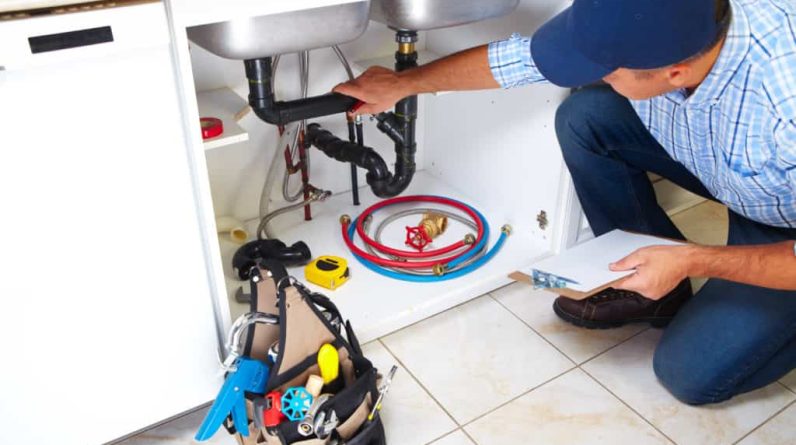
As the cold weather approaches, it’s important to make sure your home is prepared for the drop in temperature. One aspect that often gets overlooked is the plumbing in your home. Freezing temperatures can cause serious damage to your pipes and fixtures if they are not properly winterized. To ensure a cozy and stress-free winter season, we have put together the ultimate winter plumbing checklist for your home. By following these tips, you can avoid costly repairs and keep your plumbing running smoothly all winter long.
Understanding the Importance of Winterizing Your Plumbing
Winterizing your plumbing may not be the most exciting task on your to-do list, but it is incredibly important. As the temperature drops, your pipes become susceptible to freezing and bursting, which can lead to extensive damage and costly repairs.
When water freezes, it expands, putting pressure on your pipes and fixtures. This pressure can cause them to crack or burst, resulting in leaks and water damage. Not only is this a major inconvenience, but it can also lead to mold growth and structural damage if not addressed promptly.
Winterizing your plumbing is a preventative measure that can save you from these potential disasters. By taking the time to insulate your pipes, drain your outdoor faucets, and seal any cracks or gaps, you can protect your home from the freezing temperatures.
Investing a little time and effort now to winterize your plumbing will give you peace of mind throughout the winter season. So, don’t overlook this important step in preparing your home for the colder months. Stay cozy and worry-free by ensuring your plumbing is winter-ready.
Essential Steps to Protect Your Pipes from Freezing
Winterizing your plumbing is crucial to prevent your pipes from freezing and potentially bursting. Here are some essential steps to protect your pipes from freezing and ensure a cozy and stress-free winter season.
1. Insulate Your Pipes: Insulating your pipes is one of the most effective ways to prevent freezing. Use pipe insulation sleeves or wrapping to cover exposed pipes in areas such as crawl spaces, basements, and attics.
2. Disconnect Outdoor Hoses: Disconnect and drain all outdoor hoses before the cold weather hits. Leaving hoses connected can cause water to freeze in the hose and back up into your pipes, leading to potential damage.
3. Drain Outdoor Faucets: Make sure to drain any water from your outdoor faucets. Locate the shutoff valve for your outdoor faucets and turn it off. Then, open the faucet and let any remaining water drain out.
4. Seal Cracks and Gaps: Inspect your home for any cracks or gaps where cold air could enter. Seal them using caulk or weatherstripping to prevent drafts and keep your pipes from being exposed to freezing temperatures.
5. Keep Your Home Warm: Maintain a consistent temperature in your home, especially in areas where pipes are located. Set your thermostat to a temperature that keeps your home warm, even if you’re away, to prevent freezing.
By following these essential steps, you can protect your pipes from freezing and ensure your plumbing runs smoothly throughout the winter. Don’t overlook this important task and enjoy a cozy, worry-free season.
Professional Advice: When and How to Seek Help
Winterizing your plumbing is an important task to protect your home from potential damage during the colder months. However, there may come a time when you need to seek professional help. Here’s some professional advice on when and how to seek help for your winter plumbing issues.
Firstly, it’s important to know when to call a professional. If you’re experiencing major leaks, burst pipes, or a complete loss of water, it’s best to call a plumber right away. These issues require immediate attention and should not be attempted to fix on your own.
When searching for a plumber, look for a licensed and insured professional. This ensures they have the necessary qualifications and expertise to handle your plumbing needs. You can ask for recommendations from friends, family, or neighbors, or search for reputable plumbers online.
When you contact a plumber, be prepared to describe your issue in detail. This will help them understand the problem and come prepared with the right tools and equipment. It’s also important to ask about pricing and get a clear estimate before any work begins.
Remember, it’s always better to seek professional help sooner rather than later. Ignoring plumbing issues can lead to more extensive damage and costly repairs down the line. By following this professional advice, you can ensure your plumbing is in good hands and enjoy a worry-free winter season.
Maintenance Tips for Long-term Plumbing Health in Winter
Taking proactive steps to maintain your plumbing throughout the winter season can ensure the long-term health and functionality of your pipes. Here are some maintenance tips to keep your plumbing in top shape all winter long.
1. Regularly Check for Leaks: Cold temperatures can exacerbate any existing leaks in your plumbing system. Check for drips or signs of water damage around pipes and fixtures. Fixing leaks promptly can prevent further damage and save you money on your water bill.
2. Keep Drains Clear: Clogged drains can lead to backups and water damage, so it’s essential to keep them clear. Avoid pouring grease, food scraps, or other debris down the drain. Use drain covers to catch hair and other small objects, and periodically flush drains with hot water to prevent buildup.
3. Insulate Exposed Pipes: In addition to insulating your pipes before winter, periodically check the insulation to ensure it remains intact. Replace any damaged or deteriorating insulation to prevent freezing.
4. Test Water Pressure: Cold temperatures can affect water pressure, so periodically check it throughout the winter. Low water pressure may be a sign of a frozen or damaged pipe.
5. Schedule Professional Inspections: Consider scheduling a professional inspection of your plumbing system before and after winter. A plumber can identify any potential issues and make necessary repairs or recommendations to keep your plumbing in optimal condition.
By following these maintenance tips, you can ensure the long-term health and functionality of your plumbing system throughout the winter season and beyond. Stay proactive and enjoy a worry-free winter with well-maintained pipes.
Common Winter Plumbing Issues and Their Fixes
Winter brings with it a set of unique challenges for your plumbing system. Cold temperatures can lead to various plumbing issues that require immediate attention. Here are some common winter plumbing issues and their fixes to help you navigate the cold season smoothly.
1. Frozen Pipes: One of the most dreaded winter plumbing issues is frozen pipes. When the water inside the pipes freezes, it expands and can cause the pipes to burst. To fix this issue, first, locate the frozen section of the pipe. Then, gently apply heat to the frozen area using a hairdryer or heating pad. Do not use an open flame, as it can be dangerous. Once the pipe thaws, turn on a faucet to allow water to flow and relieve any pressure.
2. Burst Pipes: If a frozen pipe has burst, it requires immediate attention. Shut off the main water supply to prevent further damage. Then, call a licensed plumber to fix the burst pipe and ensure that it doesn’t happen again in the future.
3. Clogged Drains: Cold weather can increase the likelihood of clogged drains due to the accumulation of debris and grease. To fix a clogged drain, start by using a plunger to try and dislodge the blockage. If that doesn’t work, you can try using a drain snake or a natural drain cleaner. In severe cases, it’s best to call a professional plumber to resolve the issue.
4. Leaking Pipes: Cold temperatures can cause pipes to contract and expand, leading to leaks. If you notice a leaking pipe, turn off the water supply immediately. Then, inspect the pipe for any visible cracks or holes. Use pipe sealant or plumbing tape to temporarily fix the leak until a plumber can permanently repair it.
By knowing how to identify and fix these common winter plumbing issues, you can ensure that your home stays warm, cozy, and free from plumbing emergencies throughout the winter season.
Making Your Home More Energy-Efficient During Winter
During the winter months, keeping your home warm and cozy becomes a top priority. But with that comfort often comes a hefty energy bill. However, there are simple steps you can take to make your home more energy-efficient during winter, saving you money and reducing your carbon footprint.
First, consider improving insulation in your home. Insulate your windows and doors with weatherstripping or draft stoppers to prevent heat from escaping. Additionally, check for any gaps or cracks around windows, walls, and electrical outlets, and seal them with caulk or insulation foam.
Next, use a programmable thermostat to regulate the temperature in your home. Set it to lower the temperature when you’re away or asleep, and increase it when you’re at home. This way, you can enjoy a comfortable living space without wasting energy.
Another energy-saving tip is to use natural sunlight to your advantage. Open curtains or blinds during the day to let in sunlight, which can help warm up your home naturally. And when it gets dark, close them to insulate your windows and retain heat.
Lastly, consider upgrading to energy-efficient appliances and light bulbs. Appliances with the Energy Star label are designed to use less energy, reducing your utility bills. Similarly, switching to LED bulbs can lower your electricity usage and last longer than traditional incandescent bulbs.
By implementing these energy-efficient tips, you can enjoy a cozy and eco-friendly winter season, all while saving money on your energy bills. If you need an Indianapolis plumbing company, check out Coopers.






